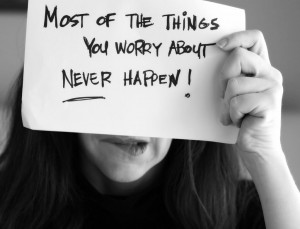
Stress. Worry. Sleepless nights. These plagues of the psyche are as common to humankind as the need to breathe, eat and love.
And just as true, the former also are proven to be detrimental to the latter.
Too much stress can, quite literally, shorten your life. Worry? Researchers have found that when it becomes consuming, worry triggers anxiety, even panic attacks as pour perspective and ability to reason become crippled — even derailed entirely.
Of course, there’s no separating what occurs within a troubled mind from the biological marvel that carries us around in the physical world — our bodies.
Worry can trigger stress, a “fight or flight” response once reserved for how we reacted to charging mastodons, a pack of wolves at the cave door or a hungry bear surprised while foraging in the forest. Today, the stress response comes from that demanding boss, employment insecurity, medical crises, failing marriages, distance relationships with children, or — as is the case for many Baby Boomers these days — aged parents with diminishing mental faculties.
Yep. Life is, and always has been, stressful. But like much in life, with what we perceive as negative, we always — always — have a choice in how we deal with it.
It’s OK to feel like you want to just walk away. Some do. Most of us, though, deal with it all as best we can, some with more success and peace than others.
It’s about expectations, really, something I learn that from my parents. I am proud of the thousands of lives touched and blessed by the Rev. Robert and Catherine Mims Sr. But my parents never had a day where they could pay the bills on a paltry minister’s salary; both of them worked second jobs to make ends meet, and they often struggled to do that.
Am I saying they never worried? Oh, they worried. But they were never paralyzed by that worry. They’d pray. Then they would get up, take a deep breath and do what they could do, trusting faith and hard work to see them, and my sister and I, through to the next day, next month, next year.
It really is about survival, isn’t it? That drive is something we share with other life forms on this planet, yet our particular species is set apart by its manifest ability to, literally, worry ourselves sick.
The difference between humans and our companions in the animal kingdom, along with the spiritual dimension so many faith systems recognize, is our self-awareness. We think about the fact that we are someday going to die, and what’s more, we see it as a “clear and present danger.”
Our heightened intellect and self-conscieous projects that stress, and fear, to such things as finances and health care issues. We are alone on this Earth with the ability to race ourselves through a house of horrors of our own making.
Mortal bodies, immortal hopes. There’s a human equation that leads both to faith, and without it, a kind of madness.
Solomon once put it this way: “He has made everything beautiful in its time. Also, he has put eternity into man’s heart, yet so that he cannot find out what God has done from the beginning to the end.” (Ecclesiastes 3:11, English Standard Version).

Christians, despite their professed faith in the Prince of Peace, are no strangers to stress and worry. It’s how we deal with it — the perspective we take — that should make the difference, though.
It is natural to mull possible solutions to our myriad problems. When that problem-solving thought process gets trapped in a loop, with each succeeding round intensifying anxiety, it becomes worry. Solomon, again: “Worry weighs a person down; an encouraging word cheers a person up.” (Proverbs 12:25, New Living Translation).
Well, duh. But in that scripture’s simplicity is summed up the substance of modern-day mental health counseling, when you think about it.
Jesus noted both the worthlessness of worry, and it’s only long-term answer — faith, and trust in the author of that faith. (That would be God, for a believer).
“Can all your worries add a single moment to your life? And why worry about your clothing? Look at the lilies of the field and how they grow. They don’t work or make their clothing, yet Solomon in all his glory was not dressed as beautifully as they are. And if God cares so wonderfully for wildflowers that are here today and thrown into the fire tomorrow, he will certainly care for you. Why do you have so little faith?” (Matthew 6:27-30, NLT).
Toward the end of his life, the Apostle Peter had found the truth of that: “Give all your worries and cares to God, for he cares about you.” (1 Peter 5:7, NLT).
Here’s this preacher’s kid’s paraphrase: Face it, identify it, pray and/or meditate about it and, trusting in the faith you profess, get up and get on with it.
That’s all we can, or, really, should do. That’s life, and we seldom can see what lies beyond the next step. But step we must; it’s what we humans do.

